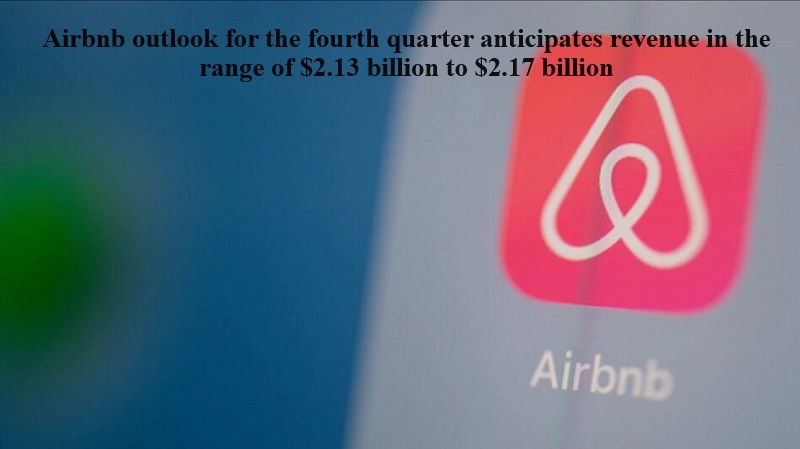
The spotlight is on Airbnb, the renowned provider of unique and hospitable accommodations. In a modern era where travel has become a prized facet of 21st-century life, it seems that travelers are now navigating unfamiliar territories.
In light of the soaring cost of living, the return to conventional office routines, and intense competition in the hotel sector, Airbnb finds itself in a transformative phase. The fourth quarter’s financial outlook predicts revenue ranging from $2.13 billion to $2.17 billion, which is slightly lower than the average estimate of $2.18 billion among analysts. This subtle shift signifies that travelers are adjusting their expectations and preferences.
The thrilling summer, often referred to as the era of “revenge travel,” has started to lose its luster as travelers set boundaries. During this period, travelers demonstrated a willingness to pay a premium for flights and accommodations, fulfilling their suppressed wanderlust following Covid-related restrictions. However, this trend is evolving.
Airbnb’s third-quarter results provide a glimmer of hope as we venture into uncharted territory. With revenues surpassing expectations, showing an 18% increase from the previous year, totaling $3.4 billion, and an impressive 113.2 million nights and experiences booked, marking a 14% increase, travelers continue their globetrotting adventures, undeterred by the challenges they encounter.
A notable shift is observed as travelers gravitate back to urban settings, relinquishing the comfort of rural domestic stays embraced during the pandemic. In the third quarter, high-density urban accommodations saw a 15% increase in bookings compared to the previous year. International travel is also gaining momentum, with cross-border bookings rising by 17%. The Asia Pacific region stands out as a resilient beacon, fully recovering to pre-pandemic levels, offering a glimpse of global tourism’s resurgence.
While the cost of accommodations remains a critical factor in Airbnb’s success and its competitive advantage against hotels, the platform has introduced tools to assist hosts in setting competitive prices. In September, the average nightly price for a one-bedroom Airbnb listing was $120, marking a modest 1% increase from the previous year. Conversely, hotel prices surged by 10%, averaging $153. These statistics underscore the delicate balance travelers strike between affordability and comfort.
However, Airbnb faces regulatory challenges, particularly in destinations such as New York City and Canada. These obstacles are poised to influence supply and room-night growth in the near future. New York City’s recent regulatory framework, which imposes specific criteria and stringent building standards on hosts, has had a significant impact on Airbnb’s operations. This change is perceived as a “de facto ban” and has resulted in the removal of thousands of listings. Prior to the regulatory shift, New York contributed approximately 1% to Airbnb’s global revenue. Meanwhile, Canada is contemplating measures to restrict the use of short-term rental platforms in response to surging rental costs.
In summary, despite potential “increased regulatory restrictions,” Airbnb’s active listings showed a 19% growth in the third quarter compared to the previous year. Over the course of this year, Airbnb has added nearly 1 million active listings, underscoring its adaptability in the face of evolving challenges.
In this ever-evolving narrative, Airbnb’s earnings report unravels the state of the tourism industry, serving as a guide for travelers, businesses, and policymakers to navigate the shifting dynamics of the travel landscape. The journey is marked by surprises, lessons, and, most importantly, the unwavering spirit of exploration and discovery.

Post Your Comments